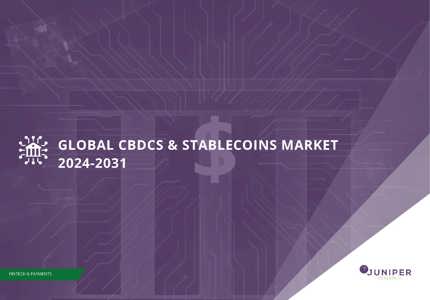The National Payments Vision ~ A New Chapter for UK Payments?
The UK has been one of the leading markets for UK financial services and payments innovation for many years, with the Faster Payments System, which launched in 2008, being one of the first instant payment systems to become popular.
However, despite some key successes, the rate of innovation within UK payments has slowed. A complex domestic regulatory environment, as well as strong innovation in other countries, means the UK has potentially lost its reputation as a leading payments innovator. In this context the Garner Review, formally called the Future of Payments Review, reported in November 2023 that a NPV (National Payments Vision) was required from the Government to chart the UK’s future course within payments.
After a long period of consultation, the UK Treasury finally launched its National Payments Vision on the 14th of November 2024. The question is, however, can the UK once again lead on payments innovation? And what does the National Payments Vision mean for the future of payments, in the UK and beyond?
The National Payments Vision – Key Points
The National Payments Vision sets out several key changes to the way payments and financial services work in the UK, which will have major implications:
- Changes to the Regulatory Framework: The NPV outlines that regulatory congestion is a genuine concern within the UK market, with the Treasury clarifying the remits of relevant regulators. Of particular note is that the Treasury has designated the FCA (Financial Conduct Authority) as the regulator for Open Banking within the UK.
- Development of New Infrastructure: The NPV details that the rate of upgrades, including the delivery of the New Payments Architecture, was not moving quickly enough, and that payment systems operator Pay.UK likely needs to reform in order to deliver in a more effective way. The NPV has set up a new committee, the Payments Vision Delivery Committee, that will see the Payment Systems Regulator and the Bank of England set out an approach to development by Q2 2025.
- The Scaling of A2A (Account-to-Account) Payments: The NPV contains the ambition that A2A payments are developed as a ubiquitous payment method, for both in-store and online transactions, which will require infrastructure upgrades, plus the regulatory changes mentioned above. This represents a major goal, and a fundamental shift in the way that customers pay for all kinds of goods and services.
- Changes to the Way Fraud is Handled: The NPV covers how fraud is a major challenge, and emphasises that intelligence sharing between financial institutions is key to improving fraud prevention. It also shares that the UK Government is calling on technology and telecommunications platforms to prevent fraud occurring on their channels. This includes the prominence of scams on Facebook Marketplace, or the use of SMS for fraud attempts.
- Continued Exploration of the ‘Digital Pound’: The NPV sets out the Government’s commitment to continuing the design phase of the so called Digital Pound, without committing to a deployment of the system in practice. It also acknowledges that the introduction of a UK CBDC (Central Bank Digital Currency) would require legislation from the UK Parliament, protecting user privacy.
- Digital Identity in the UK: The NPV sets out that the Data (Use and Access) Bill is putting digital identity verification services on a solid regulatory footing within the UK, which will be important in delivering future innovation. This includes the creation of a trust framework for digital identity verification services, the registration of approved services and issuance of a ‘trust mark’ for them, and the ability to mandate standards that these services must follow.
Where Does This Leave the UK?
Taken together, these developments represent a major shift in how payments are handled within the UK. The ambition to scale an A2A system for both in-store and online payments will be a significant shift, requiring massive changes in how consumers and merchants operate, the regulations that are in force, how fraud is handled, how third parties process payments, and other considerations.
Alongside this ambition, the NPV is fundamentally practical. It recognises that regulatory congestion is a major concern within the UK market, and that infrastructure upgrades are desperately needed to enable A2A payments. It also recognises that the UK has been a leader in Open Banking, and seeks to capitalise on that. For these reasons, the NPV is likely to be well received by stakeholders in the UK. In particular, making the FCA responsible for regulating Open Banking is a bold move. This can potentially accelerate Open Banking within the UK, which after a promising start has slowed, with regulatory oversight being distributed between different entities and a lack of viable commercial models. The change can accelerate Open Banking development, if the opportunity is used correctly.
However, there is still a lot of work to be done. The NPV does have practical steps, such as the regulatory shifts, but there needs to be much more activity to deliver on its promises. The NPV mentions the challenge of creating software and hardware that can facilitate A2A payments in-store, but this is no more than a brief mention. This is a major task, that should not be underestimated.
Therefore, the jury is still out on the future of payments within the UK. The NPV sets out a commendable agenda and trajectory, but delivering the work that is needed to achieve this will be a monumental task, requiring the participation of many different stakeholders. The future is bright, but will require consistent delivery and significant effort.
Nick Maynard is Juniper Research's VP of Fintech Market Research, and enjoys helping clients to size new market opportunities, set priorities for future growth, and understand their customers through survey projects. He has been interviewed by major news outlets such as CNBC, Coindesk, and the BBC, and has spoken at key industry events including Money 20/20 Europe.
Latest research, whitepapers & press releases
-
 ReportFebruary 2026Telecoms & ConnectivityMobile Messaging Market: 2026-2030
ReportFebruary 2026Telecoms & ConnectivityMobile Messaging Market: 2026-2030Juniper Research’s Mobile Messaging research suite provides mobile messaging vendors, mobile network operators, and enterprises with intelligence on how to capitalise on changing market dynamics within the mobile messaging market.
VIEW -
 ReportFebruary 2026Fintech & PaymentsKYC/KYB Systems Market: 2026-2030
ReportFebruary 2026Fintech & PaymentsKYC/KYB Systems Market: 2026-2030Our KYC/KYB Systems research suite provides a detailed and insightful analysis of an evolving market; enabling stakeholders such as financial institutions, eCommerce platforms, regulatory agencies and technology vendors to understand future growth, key trends and the competitive environment.
VIEW -
 ReportFebruary 2026Telecoms & ConnectivityRCS for Business: 2026-2030
ReportFebruary 2026Telecoms & ConnectivityRCS for Business: 2026-2030Our comprehensive RCS for Business research suite provides an in‑depth evaluation of a market poised for rapid expansion over the next five years. It equips stakeholders with clear insight into the most significant opportunities emerging over the next two years.
VIEW -
 ReportFebruary 2026Fintech & PaymentsMobile Money in Emerging Markets: 2026-2030
ReportFebruary 2026Fintech & PaymentsMobile Money in Emerging Markets: 2026-2030Our Mobile Money in Emerging Markets research report provides detailed evaluation and analysis of the ways in which the mobile financial services space is evolving and developing.
VIEW -
 ReportJanuary 2026IoT & Emerging TechnologyPost-quantum Cryptography Market: 2026-2035
ReportJanuary 2026IoT & Emerging TechnologyPost-quantum Cryptography Market: 2026-2035Juniper Research’s Post-quantum Cryptography (PQC) research suite provides a comprehensive and insightful analysis of this market; enabling stakeholders, including PQC-enabled platform providers, specialists, cybersecurity consultancies, and many others, to understand future growth, key trends, and the competitive environment.
VIEW -
 ReportJanuary 2026Telecoms & ConnectivityMVNO in a Box Market: 2026-2030
ReportJanuary 2026Telecoms & ConnectivityMVNO in a Box Market: 2026-2030Juniper Research’s MVNO in a Box research suite provides Mobile Virtual Network Enablers, Mobile Virtual Network Aggregators, and other players with detailed analysis and strategic recommendations for monetising demand for MVNO in a Box services.
VIEW
-
 WhitepaperFebruary 2026Telecoms & Connectivity
WhitepaperFebruary 2026Telecoms & ConnectivityHow Social Media Will Disrupt Mobile Messaging Channels in 2026
Our complimentary whitepaper, How Social Media Will Disrupt Mobile Messaging Channels in 2026, explores the challenges and opportunities for operators and enterprises as social media traffic continues to increase.
VIEW -
 WhitepaperFebruary 2026Telecoms & Connectivity
WhitepaperFebruary 2026Telecoms & ConnectivityProtecting Users from Scam Ads: A Call for Social Media Platform Accountability
In this new whitepaper commissioned by Revolut, Juniper Research examines how scam advertising has become embedded across major social media platforms, quantifies the scale of user exposure and financial harm, and explains why current detection and enforcement measures are failing to keep pace.
VIEW -
 WhitepaperFebruary 2026Fintech & Payments
WhitepaperFebruary 2026Fintech & PaymentsKnow Your Agents (KYA): The Next Frontier in KYC/KYB Systems
Our complimentary whitepaper, Know Your Agents (KYA): The Next Frontier in KYC/KYB Systems, examines the state of the KYC/KYB systems market; considering the impact of regulatory development, emerging risk factors such as identity enabled fraud, and how identity and business verification is evolving beyond traditional customer and merchant onboarding toward agent-level governance.
VIEW -
 WhitepaperFebruary 2026Telecoms & Connectivity
WhitepaperFebruary 2026Telecoms & Connectivity3 Key Strategies for Capitalising on RCS Growth in 2026
Our complimentary whitepaper, 3 Key Strategies for Capitalising on RCS Growth in 2026, explores key trends shaping the RCS for Business market and outlines how mobile operators and platforms can accelerate adoption and maximise revenue over the next 12 months.
VIEW -
 WhitepaperFebruary 2026Fintech & Payments
WhitepaperFebruary 2026Fintech & PaymentsThe Next Steps for Mobile Money – Interoperability and Openness
Our complimentary whitepaper, The Next Steps for Mobile Money – Interoperability and Openness, analyses how interoperability and open platforms can drive new growth opportunities through partnerships with key stakeholders.
VIEW -
 WhitepaperJanuary 2026IoT & Emerging Technology
WhitepaperJanuary 2026IoT & Emerging TechnologyPreparing for Q-Day: Post-quantum Security Shift
Our complimentary whitepaper, Preparing for Q-Day: Post-quantum Security Shift, assesses the factors which are increasing interest in adopting PQC, and challenges to PQC adoption. Additionally, it includes a forecast summary of the global spend on PQC by 2035.
VIEW
-
Telecoms & Connectivity
MVNO Subscriber Revenue to Exceed $50 Billion Globally in 2030
March 2026 -
Fintech & Payments
QUBE Events is excited to bring back the 24th NextGen Payments & RegTech Forum - Switzerland
February 2026 -
Telecoms & Connectivity
OTT Messaging Apps to Exceed 5 Billion Users Globally by 2028; Driving Shift in Enterprise Communication Strategies
February 2026 -
Fintech & Payments
Calling All Fintech & Payment Innovators: Future Digital Awards Now Open for 2026
February 2026 -
Telecoms & Connectivity
Operator RCS for Business Revenue to Reach $3 Billion Globally by 2027, Growing 150% in Two Years
February 2026 -
Fintech & Payments
KYC & KYB Systems Spend Outside Financial Sector to Grow 105% by 2030 Globally, as KYC Moves Beyond Banking
February 2026

























